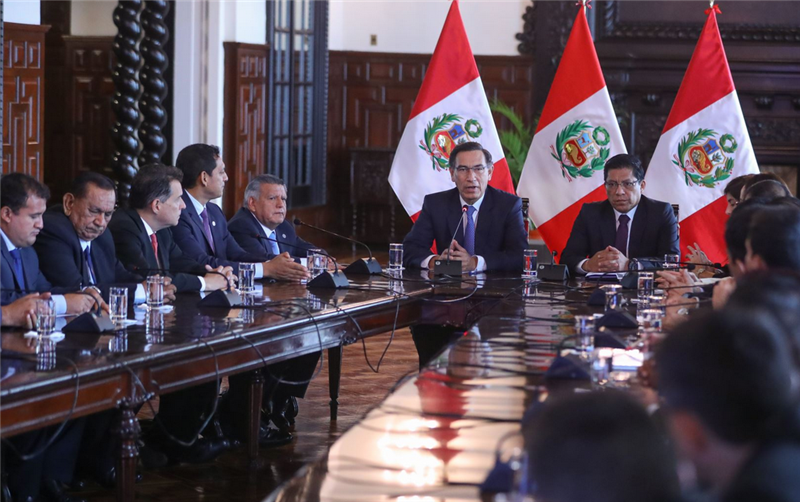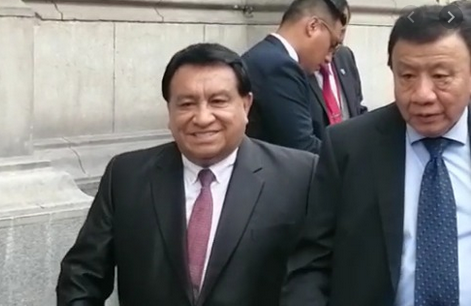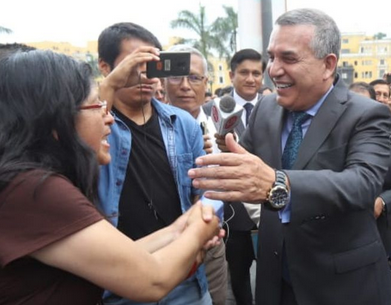
President Martin Vizcarra opened the doors this week to meetings with newly elected lawmakers, to set the tone for a good working relationship before they are sworn in to Congress next month.
Vizcarra has set out a five-point agenda for the brief term these lawmakers will serve (16 months, until July 2021) — justice reform, political reform, decentralization, reinforcing institutions, and the fight against corruption, which underpins all the reforms. The Executive has already published 67 emergency decrees that cover many of the issues, which Congress needs to review and approve before they can be enacted.
Most of the parties have been willing to support Vizcarra’s reforms, and certainly the elections proved that Peruvians are fed up with corruption. But the battle is going to be uphill. None of the nine parties elected to Congress hold a majority and several of their own agendas might make it difficult for them to reach a consensus on some of the issues. Added to this, there are power struggles within most of the parties, which have cobbled their own members together with more attractive guest candidates.

The meetings got off to a bumpy start on Monday when Jose Luna, chairman of the Podemos party, gatecrashed the President’s meeting with the members of his party elected to Congress. Luna, who took an indefinite leave of absence from the party prior to the elections, is possibly facing a 36-month pre-trial custody sentence while investigations continue into several allegations of corruption, including bribing superior court judges with 1.3 million soles from his now defunct university, Telesup, and involvement in Odebrecht funds given to the Solidaridad Nacional party of which he was once a member. The district attorney’s plea for the imprisonment is that the corruption network in the judicial system is beginning to regroup with the help of figures like Luna.
Luna should not have been allowed into the palace, according to Walter Alban, head of ProEtica and a former People’s Ombudsman, but Luna made sure he was at the table and front and almost center in the photo taken with the President.

But the party’s bench leader in the new Congress also has his own problems — former army general Daniel Urresti, who received the highest number of votes of any candidate, faces trial in April this year for the murder of journalist Hugo Bustíos 32 years ago in Ayacucho at the height of the Shining Path conflict. The case has been in and out of court several times, but the Supreme Court annulled a 2018 acquittal and ordered a new trial.
At the government palace earlier Monday, the president of the Alianza para el Progreso party, Cesar Acuña, promised his lawmakers’ commitment to approve the reforms and to present a bill to eliminate parliamentary immunity, which was abused in the Congress dissolved in September last year to protect several lawmakers from criminal investigations and charges. Acuña, however, is himself under investigation for money laundering in different cases linked to his time as governor of the north region of La Libertad and the three universities he has founded, including Cesar Vallejo University. The newest investigation is into his purchase in 2016 of a $1.3 million house in Spain, which he paid for in cash.
Two parties have turned down a meeting with the President this week. Union por el Peru declined on the grounds that it is too early, the exact tally of votes has not yet been made official. Now a hard-line radical group, UPP supports the fight against corruption —although it suggests the firing squad for those found guilty— but their main aim is to obtain a pardon for Antauro Humala, ex-President Ollanta Humala’s brother who as an army officer led a mutiny in Andahuaylas in which surrendered police were killed. The party’s aim is to launch Antauro as presidential candidate for 2021.
The other party that turned down Vizcarra’s invitation is Frepap, which says any talks are futile until the new lawmakers receive their credentials. The party— the People’s Agricultural Front— has returned to Congress after 20 years. It is the political arm of a messianic sect (Israelites of a New Universal Pact) with a strong following in the provinces in the jungle of eastern Peru. A faith based on Old Testament teachings and Inca beliefs, the sect also has followers in Colombia, Ecuador and Bolivia. Its campaign promises show it will probably give strong support to the government’s reforms against corruption.
A large number of the lawmakers elected to Congress this year have no congressional experience or indeed any political experience, which will slow down any hopes that all of Vizcarra’s reforms will be pushed through before a new Congress is sworn in in July 2021. Many of the judicial and political reforms are crucial to ensure that the next Congress, Constitutional Court and related institutions are shielded from corruption.





